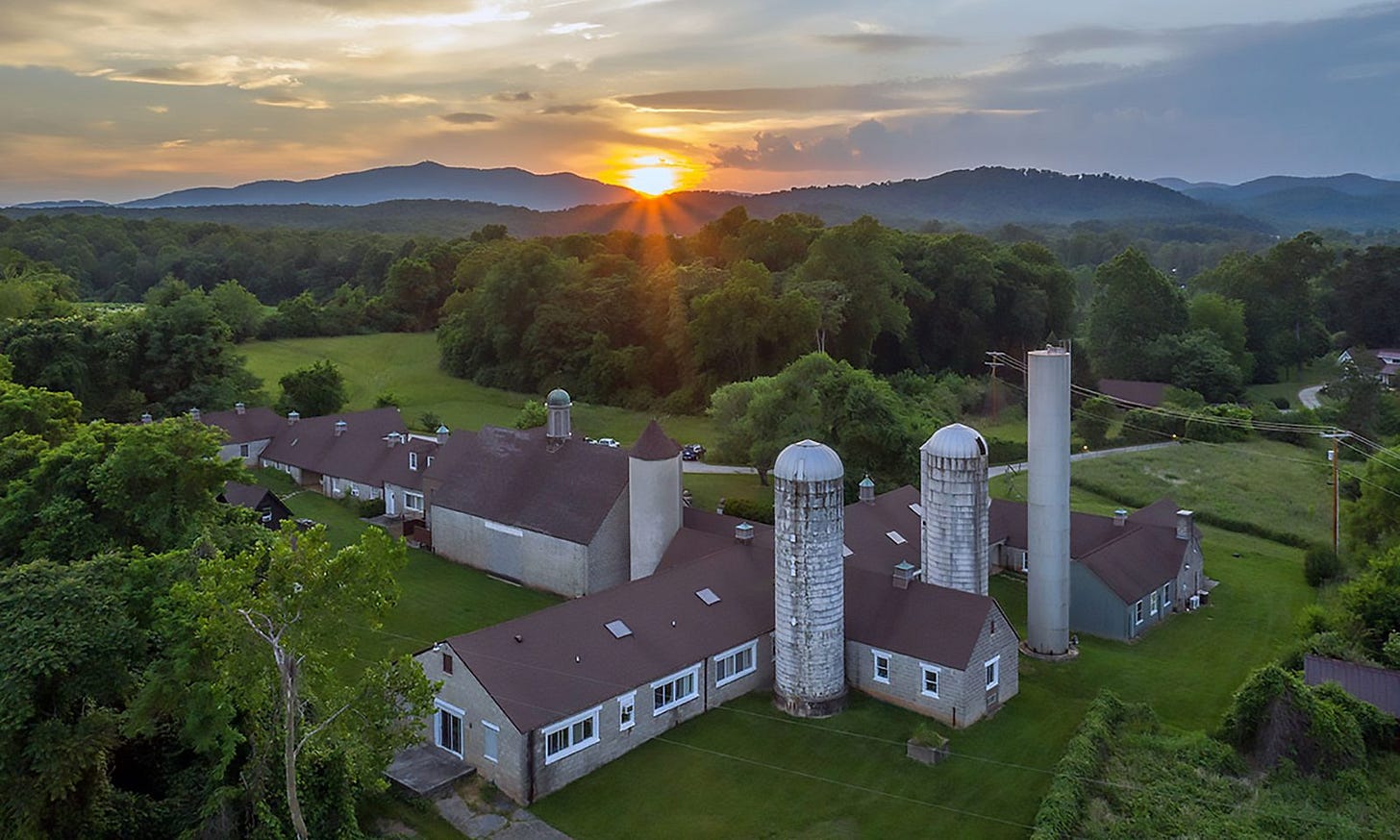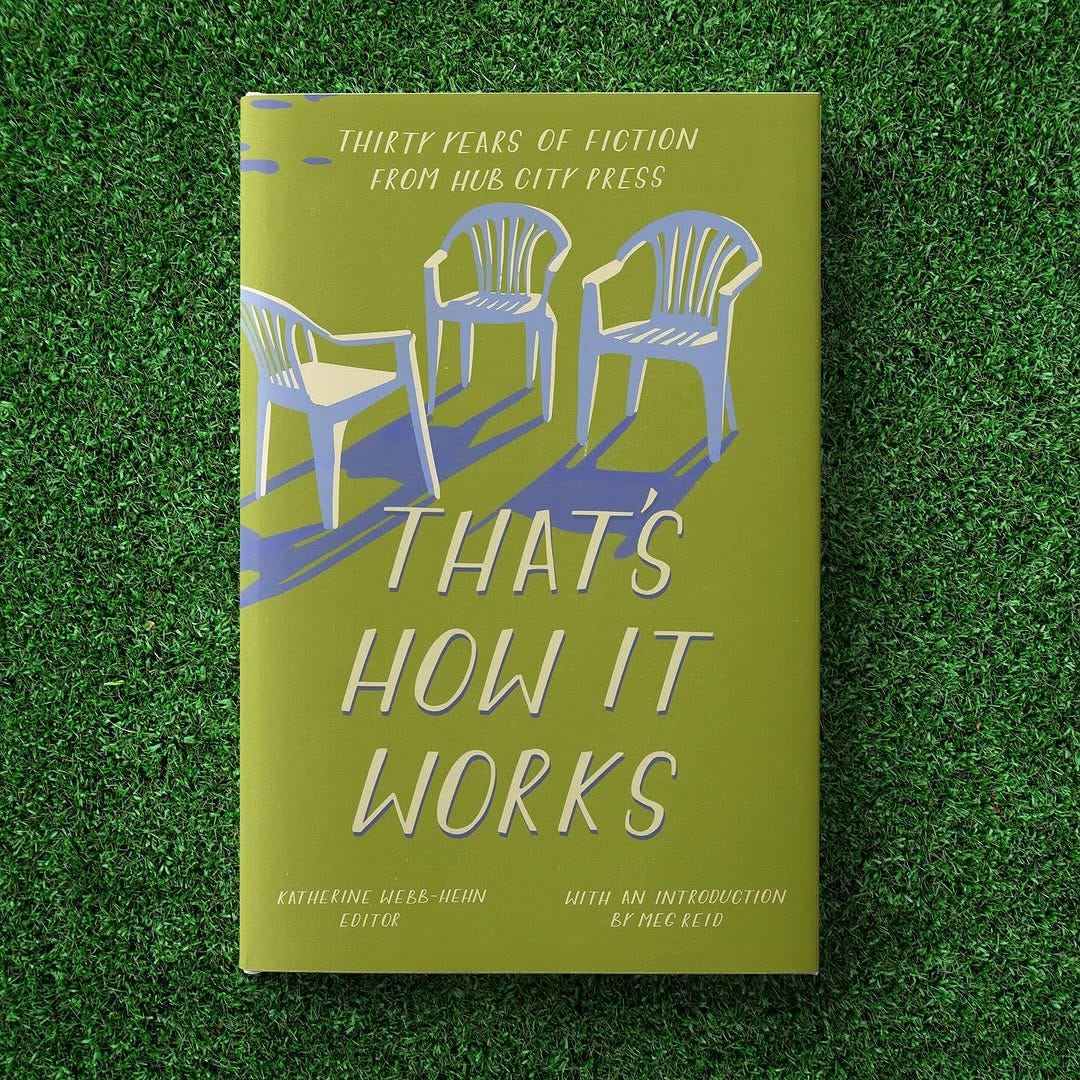Stuck, and Unstuck, in Virginia
News: VCCA residency, Center for Fiction class, Hub City Press anthology
Greetings from the Virginia Center for the Creative Arts (VCCA), in the rolling Blue Ridge Mountains, where I will be installed for the next three-ish weeks, pecking at the keys and, one hopes, not taking too many naps.
I wanted to share a few quick updates before returning to staring out the window (picture: weatherbeaten fence and rust-roofed shed) and trying to write. Could be worse!
First, a plug: this August, at the Center for Fiction, I’ll be leading a four-week writing workshop—called An Answer to Any Problem—that will use Lydia Davis’s writing as a springboard to generating new work of our own. I hope you will consider taking this class, and telling anyone whom you think might be interested in it.
At the beginning of each semester at Columbia, I ask my undergraduate creative writing students to read Davis’s essay, “Thirty Recommendations for Good Writing Habits,” in which Davis, with insight and unusual generosity, offers readers a host of practical suggestions for improving their writing and, just as important, their writing process. Following Davis’s example, we observe the world around us and ourselves in it (“but not at tiresome length”); we ride public transportation and leave at least fifteen minutes free after every writing session; we eavesdrop; we closely analyze “good” writers to solve problems we’ve having with our own work. It’s great fun, and we—myself included—always seem to leave with new and useful takeaways.
Last semester, we took our Davisian adventures one step further with a visit to Columbia’s Rare Book and Manuscript Library, where Davis’s papers are housed. It is illuminating—and no small thrill—to see Davis’s discarded ideas for titles (an early draft of her novel The End of the Story was called “My Novel, as I’m Writing It”), self-analysis (“I am moved by earthworms, paved roads, and people who find me boring”), and false starts. As much as any writer, Davis’s approach to overheard dialogue, revision, and the close analysis of texts has informed my process for the novel I’m working on, and I thought it would be interesting to immerse myself, alongside some fellow travelers, in her work this summer.
Won’t you join us?
Second: one of my favorite literary organizations, Spartanburg’s Hub City Press, is putting out That’s How It Works, an anthology celebrating thirty years of fiction from the press. (I spent a memorable summer, some years ago, as writer-in-residence at the Hub City Writers Project; what they’ve done to help revitalize downtown Spartanburg is commendable.) Edited by Katherine Webb-Hehn, with an introduction by publisher Meg Reid, the book collects new and beloved writing from friends like Thomas Pierce, Carter Sickels, John Lane, George Singleton, and others. (I contributed two new very short stories to the book; both stories, as it happens, are about bugs.) You can pre-order a copy here, or look for it at your local bookstore come October.
As I type these words in my studio on the VCCA campus, a train—passenger? freight?—hurtles by, horn on blast, in the valley below. Soon we’ll be called to dinner. In the meantime, and over the coming weeks, I hope to make some progress on the novel manuscript that I’ve been chipping away at for the past few years. (The book, if you’re curious, is titled “Open Book.” It draws from my own lived experience of unconventional fatherhood as well as all-too-conventional, if underconsidered eldercare.)
If I get stuck—which is certainly possible has already happened—I plan to pull out another piece of long-form fiction I’ve been kicking around, the drawn-from-life story of an older Taiwanese immigrant couple’s decision to sell their upstate South Carolina home and move—but where? Turns out everyone—the couple, their adult children—has a differing opinion. (And if I get stuck on that, I’ll return to the novel—or maybe take one of those aforementioned naps.)
In any event, I’m immensely grateful for, and incredibly lucky, to have the opportunity to be here. Unfortunately, this also means that these newsletters—admittedly already sporadic—will be, in all likelihood, even more sporadic.
Apologies in advance; see you when I see you.






